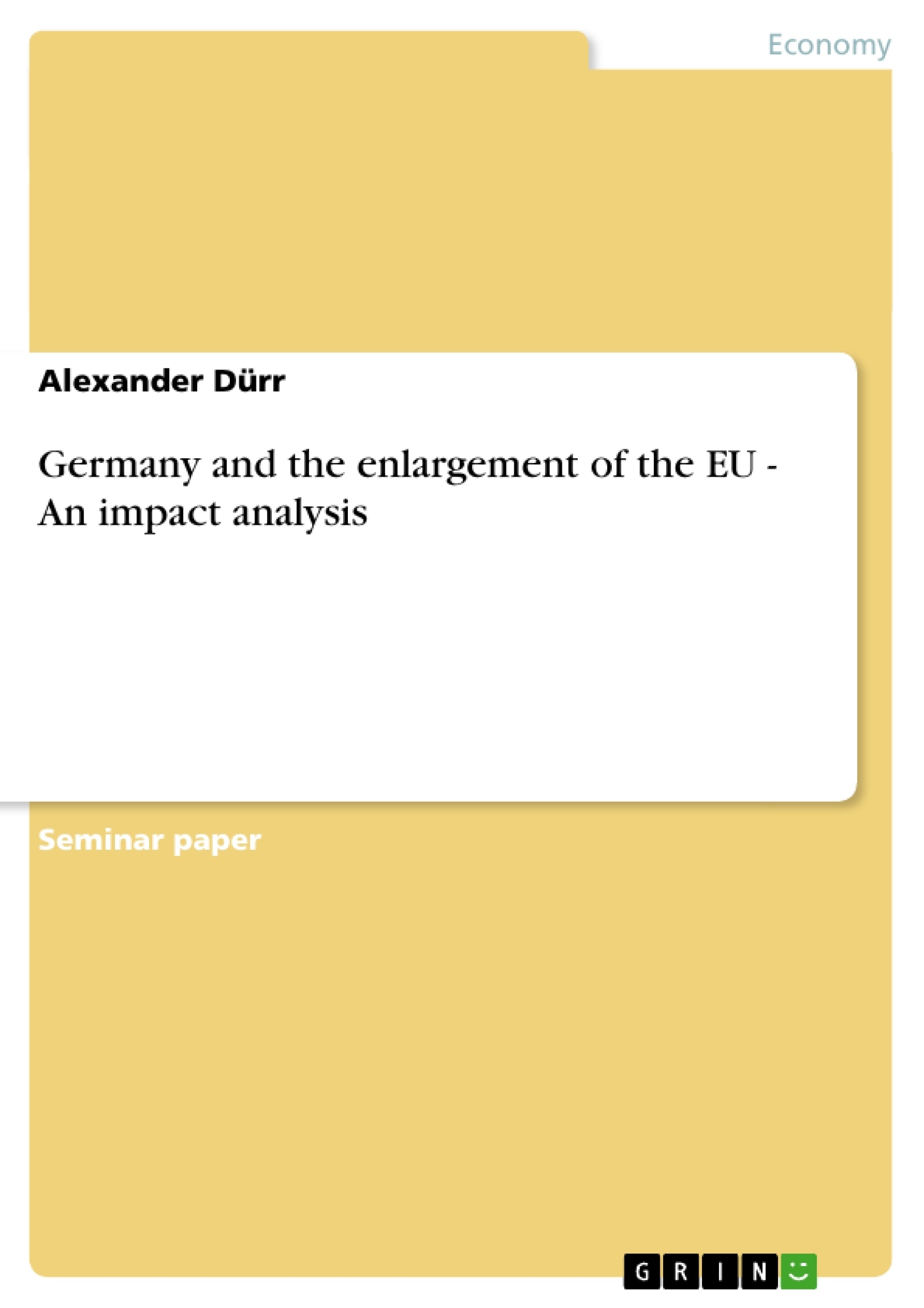1. Introduction
For many centuries Europe was torn by the antagonism of power. During the world wars a united Europe seemed like an inconceivable illusion. But utopia became reality. Now, 15 years after the fall of the Berliner wall Eastern countries are joining the European Union. The EU enlargement on 1 May could be the beginning of a modern fairy tale.
On this day the European Union opened its doors to another 75 million people from the 10 new member states of southern Cyprus, the Czech Republic, Estonia, Hungary, Latvia, Lithuania, Malta, Poland, Slovakia and Slovenia. Never before in its long history has Europe been more united than nowadays. (Warren, 2004) With a total population of approximately 450 million people the EU has created the world`s largest single market which will have a enormous impact on the world market as well as on the markets of the old member states. (MDR, 2004)
The EU enlargement obviously impacts the established political order of the EU, however it is now - despite doubtlessly existent risks - broadly seen as a great chance in a political, economical and also very much in a cultural way. There has been a big discussion involving all different levels of society and politics about where this is going - and where it will all end. (Wallendorf, 2004)
This work will focus on Germany as an old member of the European Union and examine the extent to which the benefits of the 2004 enlargement outweigh the disadvantages. Due to the word limitation the major issues will be mentioned but the attention will focus more on the implication for the German economy, although the issues sometimes interact each other it is not always possible to separate them. The agriculture sector will be left out of consideration. The pictures used in this report are taken from the official homepage of the German Government and the European Commission. [...]
Inhaltsverzeichnis (Table of Contents)
- Introduction
- Political implications
- Security implications
- Environmental implications
- Economical implications
- Conclusion
Zielsetzung und Themenschwerpunkte (Objectives and Key Themes)
This work analyzes the impact of the 2004 EU enlargement on Germany, specifically focusing on the economic implications. While considering various aspects, the analysis prioritizes the impact on the German economy. The work explores the potential benefits and drawbacks of the enlargement, while acknowledging that the various issues sometimes overlap and cannot always be fully separated.
- Political stability and security in the EU
- Economic impact on Germany
- Restructuring of EU institutions
- Environmental implications of EU enlargement
- Challenges and opportunities of further EU expansion
Zusammenfassung der Kapitel (Chapter Summaries)
- Introduction: This chapter introduces the topic of EU enlargement and its historical context, highlighting the significance of the 2004 expansion. It emphasizes the impact of the expansion on the EU's population and market size.
- Political implications: This chapter examines the impact of EU enlargement on political stability and security, particularly within the new member states. It discusses the need for institutional restructuring and the proposed new constitution, focusing on the German perspective regarding voting mechanisms and the future of EU expansion.
- Security implications: This chapter analyzes the potential impact of EU enlargement on security and organized crime, particularly considering the expansion of borders and the increased cooperation between police forces. It highlights the benefits of the Schengen Agreement in combating cross-border crime and terrorism.
- Environmental implications: This chapter explores the environmental implications of EU enlargement, focusing on the varying levels of ecological standards among member states. It discusses the German government's perspective on utilizing the enlargement as an opportunity to raise environmental standards in the new member states and create a level playing field for the environmental industry.
Schlüsselwörter (Keywords)
This work focuses on key topics such as EU enlargement, political stability, economic impact, institutional restructuring, environmental standards, and organized crime. The analysis centers on the German perspective on these issues, examining the benefits and drawbacks of the 2004 EU expansion. The work also considers the challenges and opportunities presented by future EU enlargement.
- Quote paper
- Alexander Dürr (Author), 2004, Germany and the enlargement of the EU - An impact analysis, Munich, GRIN Verlag, https://www.grin.com/document/32824




